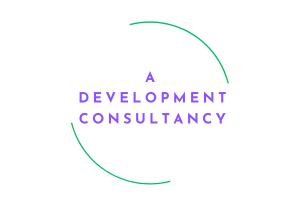Standing on the Shoulders of Giants – imposter syndrome
 On Saturday 6th May 2023 King Charles III will be coronated at Westminster Abbey in London. The ceremony, as stated by the BBC, will “formalise the monarch’s role as the head of the Church of England and marks the transfer of their title and powers.” The grandeur and importance of such a day will no doubt bring with it mixed emotions for the King, following in the footsteps of Queen Elizabeth II and his mother’s 70-year reign.
On Saturday 6th May 2023 King Charles III will be coronated at Westminster Abbey in London. The ceremony, as stated by the BBC, will “formalise the monarch’s role as the head of the Church of England and marks the transfer of their title and powers.” The grandeur and importance of such a day will no doubt bring with it mixed emotions for the King, following in the footsteps of Queen Elizabeth II and his mother’s 70-year reign.
In September 2022, Selina Scott published an article for the Daily Mail titled “Charles told me he had imposter syndrome and felt trapped – but I still believe he’ll be a great King”. Described as “a collection of feelings of inadequacy that persist despite evident success” in Harvard Business Review, imposter syndrome is a complex psychological position where individuals suffer from “chronic self-doubt and a sense of intellectual fraudulence that override[s] any feelings of success or external proof of their competence”.
Imposter syndrome is more common than you may think
In a recent survey, Psychology Today reported that as many as 70% of adults will experience imposter syndrome at some point in their lifetime, with between 25% and 30% of high achievers struggling to overcome it. Given its prevalence, how do we, both as individuals and as people managers, help to switch the position from one of internal insecurity to one of empowerment, building upon the expertise of those who have gone before and recognising the value we now bring to the table?
How to overcome imposter syndrome?
A previous post we shared on the topic contains some helpful tips for overcoming imposter syndrome including:
- Questioning negative thoughts and beginning to replace them with positive thinking
- Learning to accept thoughts, feelings and emotions, even if they are negative (mindfulness can be a useful practice to help with this)
- Moving forward despite negative feelings
- Setting clear, measurable and realistic goals
- Avoiding comparing abilities to those of others
- Learning not to take constructive criticism personally
- Re-balancing time away from work with hobbies.
For managers who have identified that members of their team are suffering from imposter syndrome there are things you can do to help support those employees. A recent article posted by MIT Sloan Management Review talks to this very topic, sharing recommendations for managers.
Some of the tips they share include:
- Opening up communication – talking to employees and using structured questions to do so
- Reframing ‘syndrome’ as ‘thoughts’ – this avoids thinking about it as something that is ‘fixed’ and can’t be overcome
- Challenging and reframing imposter thoughts – helping the individual understand limiting beliefs are thought not fact and don’t reflect their actual competence
- Helping employees with career planning – providing a more realistic perspective on their abilities
- Challenging the stereotypes – what constitutes a ‘high performer’?
- Creating the right working environment – avoiding a culture which values perfectionism
- Checking your bias when allocating work/rewards – if bias is at play and individuals are overlooked it could lead to feelings of being ‘not good enough’.
Click here to read their article in full.
How can People Business help?
Whilst overcoming imposter syndrome is a process that takes time, we can support those in senior roles who are dealing with imposter syndrome through our executive 1:1 coaching.
Consulting Director at People Business, Graeme Rainbird states:
“It’s not uncommon to hear people at the top of organisations struggling with imposter syndrome. I think that for most people this boils down to self-doubt – we passionately want to do a good job and we don’t have the self-confidence that we will succeed. While there is a shred of helpful self-challenge here, this doubt can breed insecurity and result in a decrease in performance.
“This fuels a self-fulfilling prophesy – ‘I knew I would struggle and I am!’. We compare ourselves unfavourably with others who we assume are competent and confident (not knowing what struggles they themselves may have). What I have seen as a coach is that talking this through, challenging unrealistic assumptions and taking the time to reflect on one’s achievements can act as the first step to establishing realistic expectations of oneself. Many of my clients find that coaching can provide the environment for both open discussion and safe challenge to overcome those blocks.”
If you’re interested in speaking to one of our experienced coaches, please contact us.




